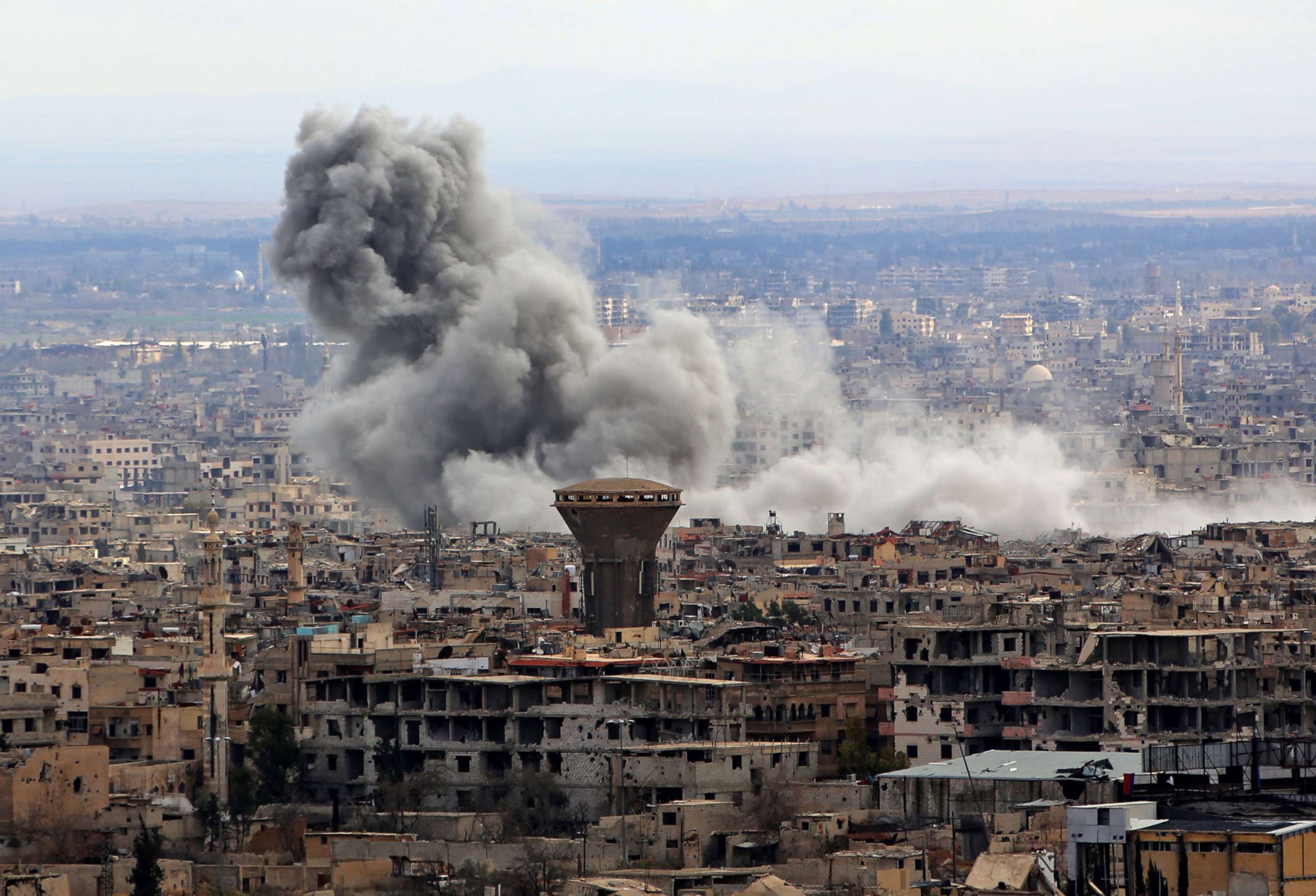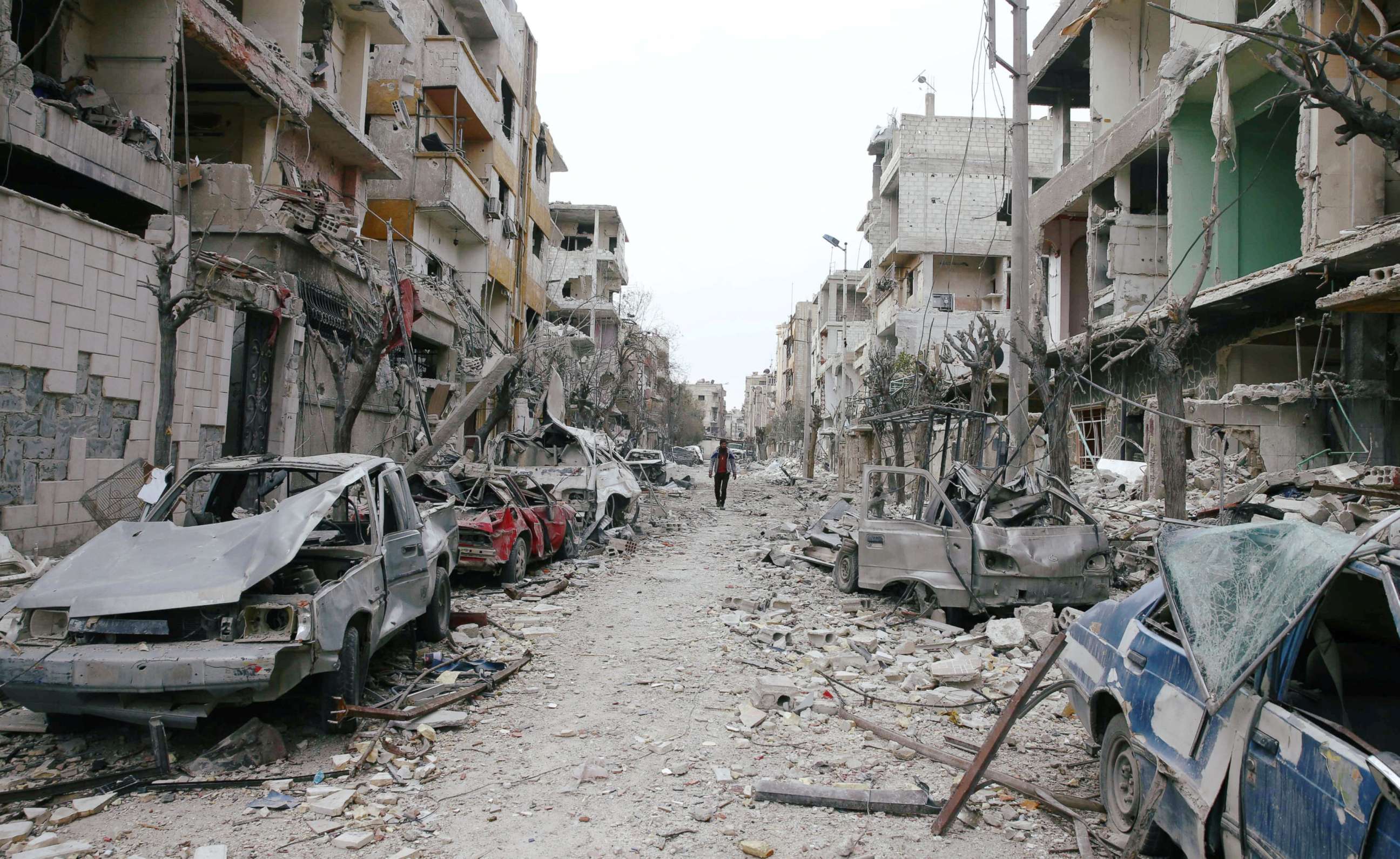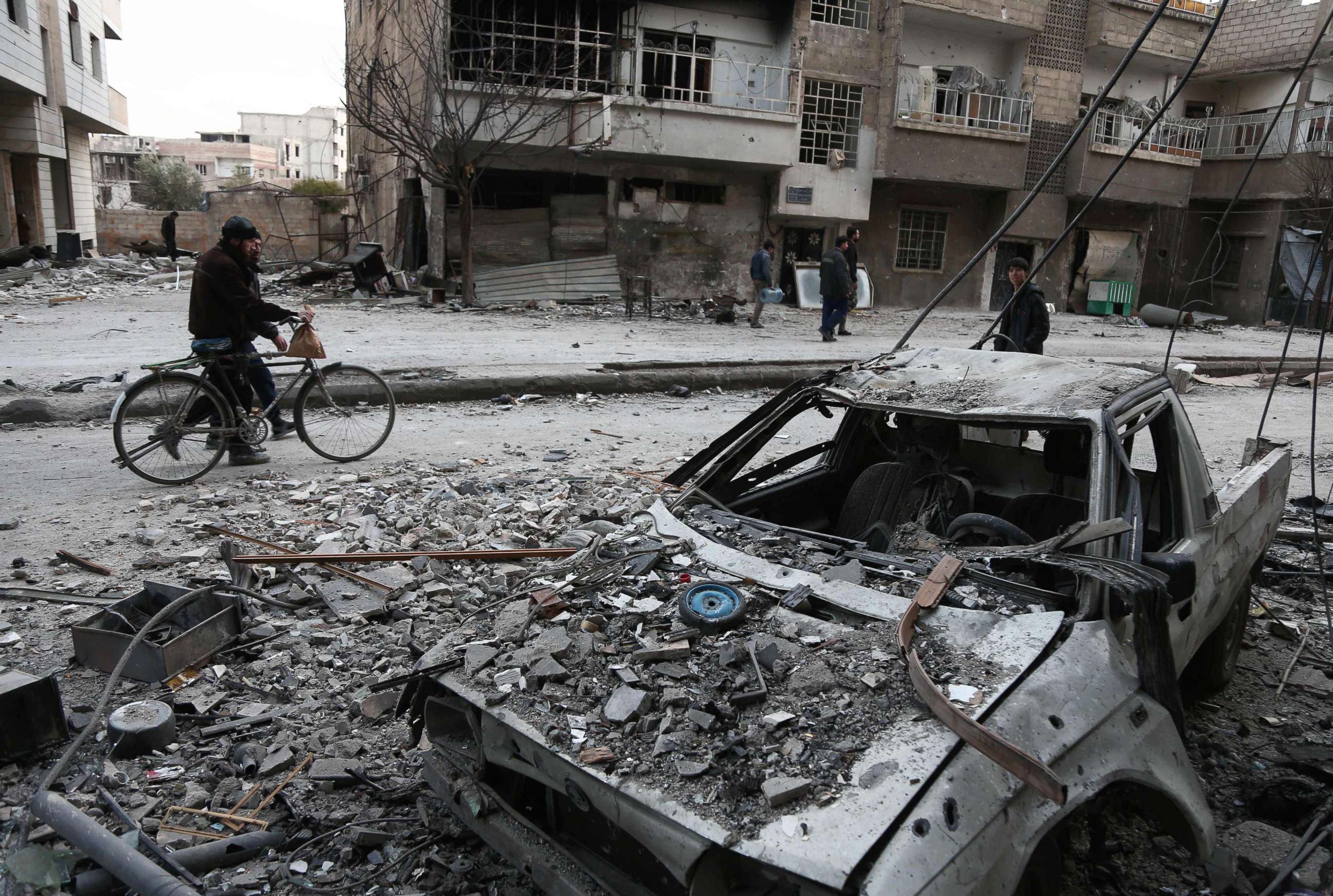Syrian government bombing of Eastern Ghouta continues, despite Russian pause
Residents told ABC News that warplanes were in the sky, dropping bombs.
— LONDON -- Airstrikes and shelling resumed on Tuesday in the rebel-held enclave of Eastern Ghouta in Syria, despite a five-hour humanitarian pause ordered by Russia, Syrian President Bashar al-Assad’s main ally.
Syrian government warplanes and helicopters struck several towns in Eastern Ghouta during the designated ceasefire period of 9 a.m. to 2 p.m., according to U.K.-based monitoring group The Syrian Observatory for Human Rights. The group said at least two civilians, one of them a child, were killed.
The United Nations also said that fighting has raged on.
"The fighting continues despite the humanitarian pause," Jens Laerke, a spokesman for the U.N. humanitarian office, told ABC News. "Since its start, there has been shelling inside Eastern Ghouta. There was also shelling toward Damascus last night."
Residents told ABC News that warplanes were in the sky, dropping bombs, after the ceasefire came into effect at 9 a.m. local time.

Since Feb. 18, the Syrian government and its allies have intensified attacks on Eastern Ghouta, killing at least 570 civilians, including 142 children, according to the Syrian Observatory for Human Rights.
On Tuesday, the Russian military accused rebels in Eastern Ghouta of firing mortar shells on a humanitarian corridor that it said had been opened to allow civilians to leave the besieged area, Russian news agencies reported. It said that no people had left Eastern Ghouta. The rebels denied shelling the route.
Hours into the five-hour daily ceasefire, residents told ABC News they could hear the sound of warplanes and explosions. They did not trust that it would be safe for them to leave the besieged rebel-held enclave, they said.

"No one dares to leave from here out of fear of revenge and out of fear of being detained [by the Syrian government]," one resident of Eastern Ghouta’s largest town Douma, who asked not to be named out of security concerns, told ABC News. She said planes had been dropping bombs on Eastern Ghouta since the morning.
Hytham Bkkar, a media activist in Douma, said planes were in the sky while he was watching live Syrian state television showing footage of the humanitarian corridor that had been opened. He did not want to leave, he said.
"People reject any talk about being displaced from their land and their roots," he told ABC News. "They will not leave, no matter the cost, because they saw what happened in Aleppo."

In December 2016, when residents were bussed out of besieged rebel-held east Aleppo, the U.N. said that hundreds of men who left the area were reported missing and may have been detained and mistreated by the Syrian government.
On Saturday, the U.N. Security Council adopted a resolution demanding a complete cessation of hostilities for 30 days across Syria "without delay." On Monday, Russia said it would establish a truce lasting for five hours per day, starting Tuesday.
An estimated 400,000 people are trapped in Eastern Ghouta with little access to food, water, fuel, electricity and health care. The district has been besieged by the Syrian government since 2013.
ABC News' Rym Momtaz and Patrick Reevell contributed reporting.




